Ìtè-Pot
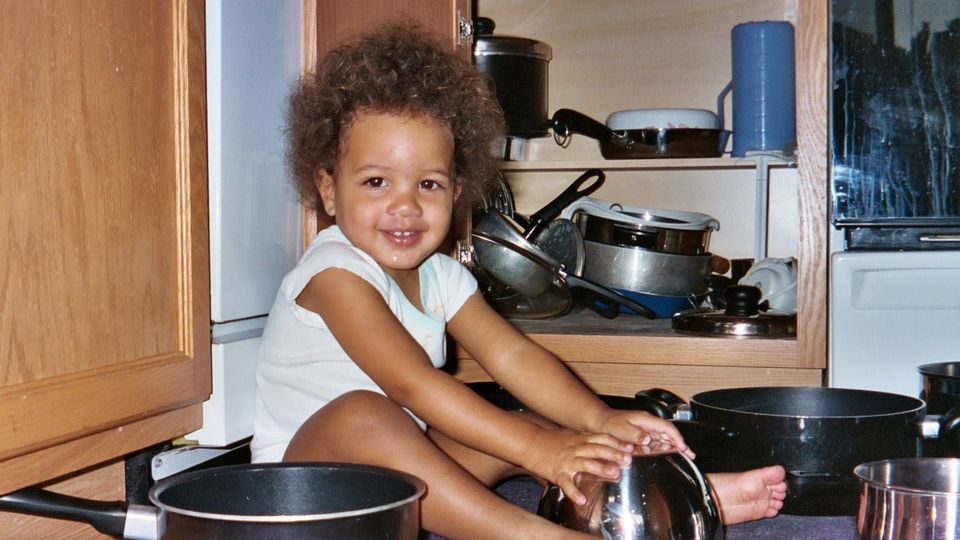
Gently blow and stir the fire,
Lay the mutton down to roast,
Dress it nicely I desire,
In the dripping put a toast,
That I hunger may remove:
Mutton is the meat I love.
—Jonathan Swift - Cooking Poem: How I Shall Dine
A heaping helping of fried chicken
Macaroni and cheese and collard greens—
Too big for my jeans
Smoke steams from under the lid that's on the pot
Ain't never had a lot, but thankful for
The little that I got
—Goodie Mob (CeeLo Green) - Soul Food
My titles so far have been English followed by Ìgbò approximate, but here we have a fun pleonasm. My Dad, when in a humorous mood would sometimes call a pot an ìtè-pot. "Ìtè" is Ìgbò for pot, but my he tells me that when he was a child that combination and others like it became fashionable terms, a way for folks to show off that they knew a bit of English. A metallurgist, Dad was always haranguing me to make sure I knew, e.g. the practical properties of the different types of iron and steel that can be used to make cookware, a bit like staying au fait with the many fun tricks of language around cooking in a part of the world where the varieties of cuisine are utterly dizzying.
Such things are especially on my mind these days as we enter the harvest period. Actually, the signature Ìgbò harvest is already done, as the rainy season ended in early August, with the moon's postures signaling the harvest festival, Iríjí (New Yam Festival), according to local reckoning. I always point out when I mention that yam is the cardinal crop of the Igbo that we ain't talking no silly sweet potatoes, as you can see at a glance from the typically-sized yam the lady to the right is carrying in the image below. Appropriately enough some of her colleagues are carrying ìtè-pots (the ceramic kind, in this case).
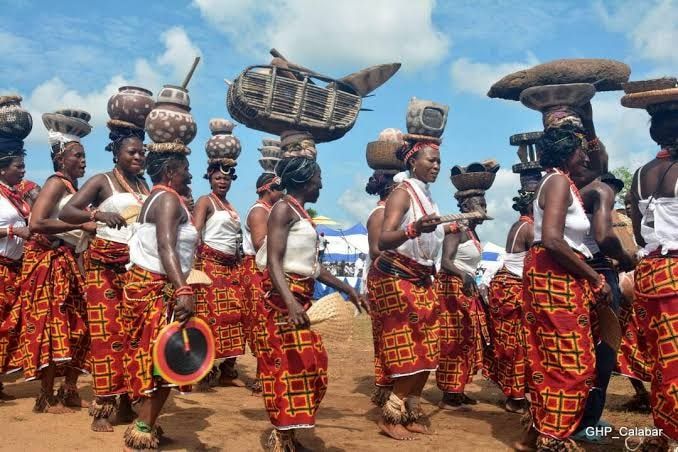
I realized in digging up the Jonathan Swift quote above how few well-known poems there have been about cooking, prior to the late 20th century. There are a few poetic trends from recent eras that I dislike, but one thing I really appreciate is how poets have become emboldened to write about everything, every day things included, if you can believe that. Of course folk poetry and music never shied away from the quotidian, but academic types seemed to spend many centuries acting as if it topics such as cooking lay beneath the great arts.
I have quite a few poems on harvest, food and cooking themes in Ńchéfù Road, including two chosen from a series I call "Mysteries of Harvest", using variants on the sonnet form to cover the subject. One of them was quoted in its entirety in a prominent review of the book. Here is a snippet from a different poem altogether.
I swelled to the stove, which sprang wormhole
To Chengdu, to Tehran, to Kabul and Lhasa,
And over the möbius loop to Lomé, Yaoundé and Calabar.
To fistfuls of waterleaf, ụ̀tázị́ sprinklings,
Periwinkle with the waste ends sheared,
All royal spit-curl prominences
—Uche Ogbuji - from "Two Kitchens" (Ńchéfù Road)
It just now occurred to me that I know the Éfị̀k word for periwinkle—m̀fị́—but not the Ìgbò, and that this is the case with several other cooking terms. I guess that's a bit of a signposting of how my food culture association cleaves more to my Mum's than my Dad's side (Mum is technically Ùmón, but we Ùmón are somewhat of a stubborn island in a sea of Éfị̀k). And yes, this is about the whelks, not the flowers. I have fond old memories of siting among a pile of them in the backyard with a machete, whacking off their inedible ends, and often being scolded by Mum for shearing off a smidge too much meat, or too little waste. Tricks of taste—tricks of tongue.
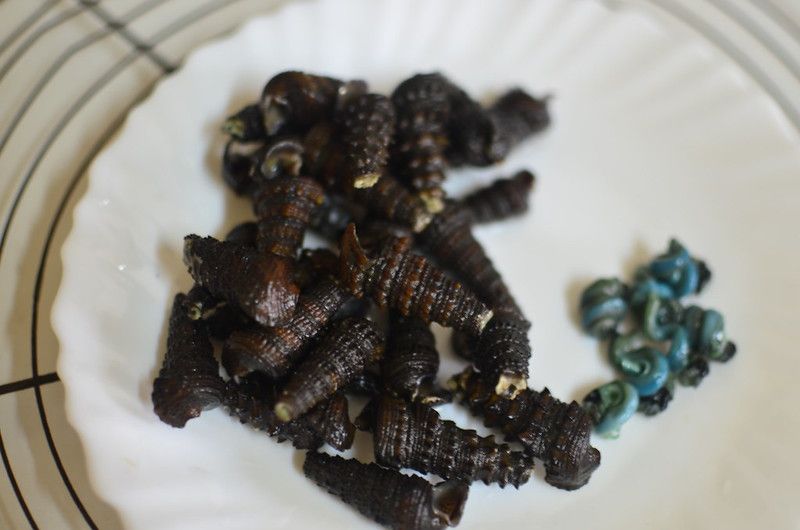
Talking, itinerant ìtè-pot
It's been such a delight continuing to travel in support of Ńchéfù Road. Fun readings in Telluride and Fruita.
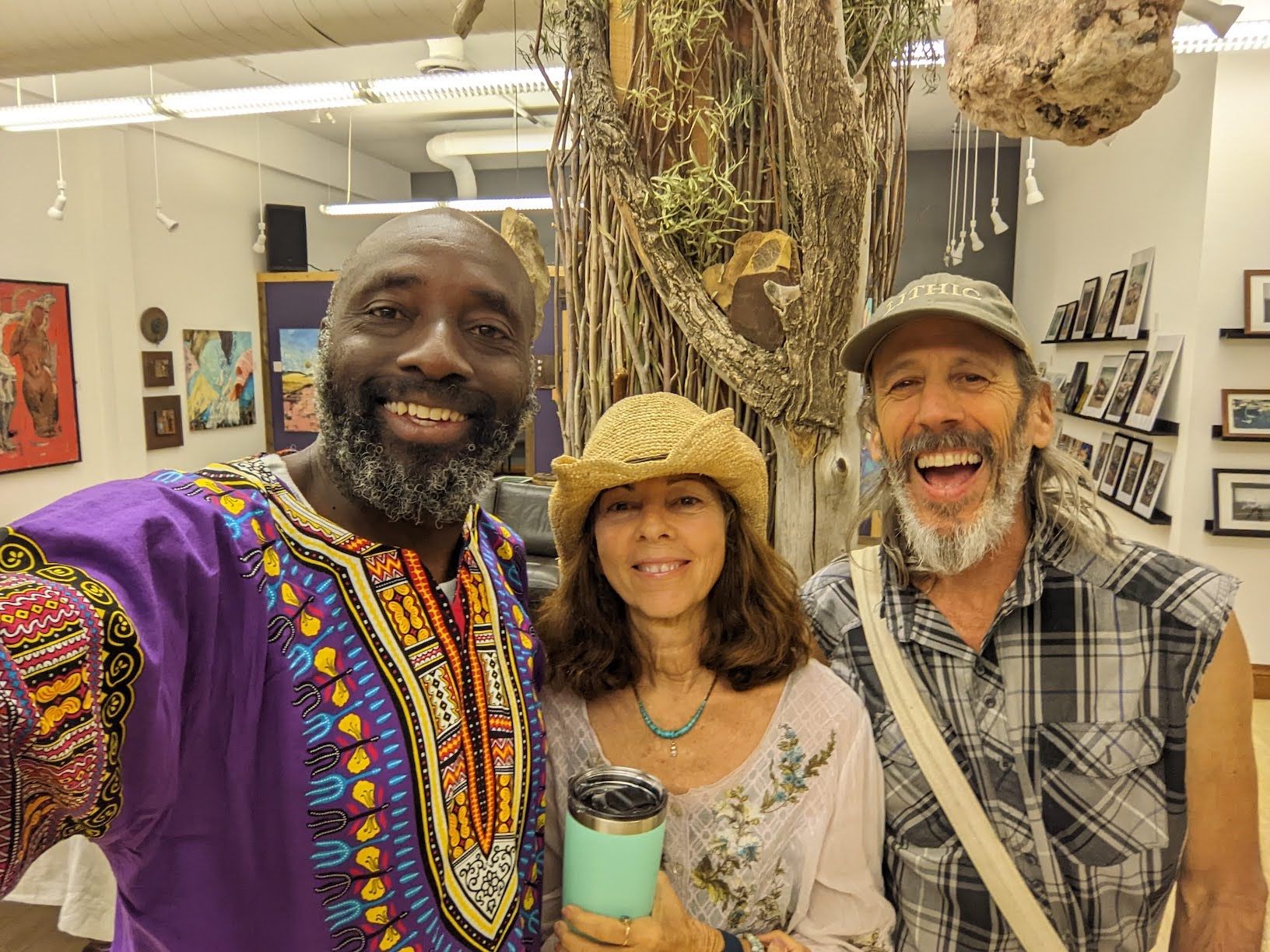
There are a few more appearances in prospect, all on the Front Range at this point. Come through!
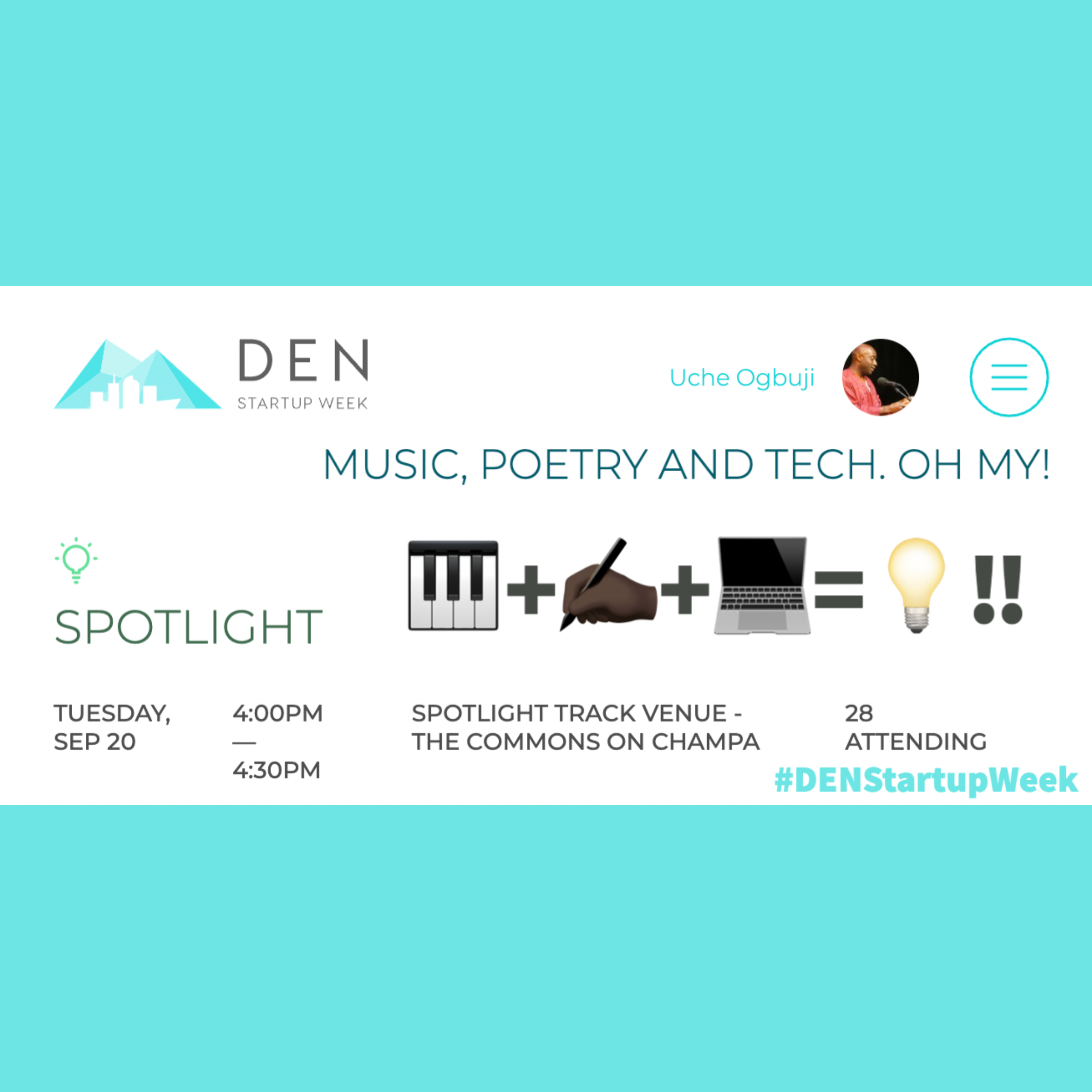

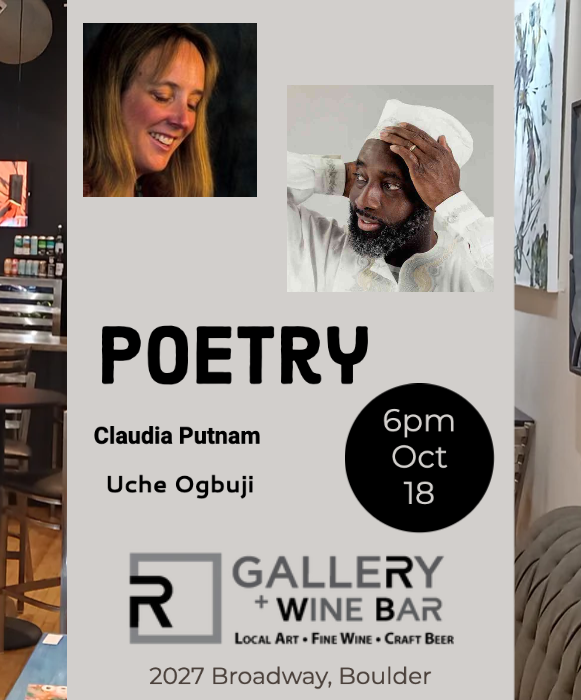
Whether your wanderings take you anywhere near mine this harvest season, I wish you all the good fortune we all need while braving, with those whom we love, the skewed vicissitudes of sharing food.
Talking Pot
There are stories to read in the orange heat under a cooking pot,
Not merely the megrims of a hungry body's mind
The harvest bounty whispers through the kitchen who's been quarreling
And which relationships are but a mouthful from the mend.
Each time we dine together we're properly reintroduced—
You are my parent, my child, my sibling, my liebling, my friend.
There are stories to read in the orange heat under a cooking pot,
Trade me the truth in this food for a wineskin's weight in fraud.
What a small machine makes of words (& such)
Ok so that's not quite it. In the introduction to his 1944 collection of poems The Wedge, William Carlos Williams wrote "A poem is a small (or large) machine made of words." It seems an odd thing to say (even for such an odd book), but it's perfectly apt. We've all got words in our pot, and we can heat them up so they stir and bubble a bit, but some careful structure and craft can elevate words to a condition where they turn any incident energy into valuable work. I guess that's what a trained engineer's brain makes of poetry—of course Williams was a physician, but that amounts to the same thing, with less maths.
Speaking of maths, or rather code, which amounts to the same thing, with more bugs, it's time to really start digging into what I had in mind with a tech section of The Loomiverse. I embraced computer programming shortly before I did poetry, and I've always done some experimenting, one with the other, but usually sticking these scraps in the more cobwebby corners of my hard drive. One exception is the article series I wrote on the topic for IBM in 2018 (warning 1: lots of code there; warning 2: that's the wayback machine because for some mad reason IBM decided to trash their entire developer outreach site in the COVID era, or maybe someone fat-fingered the wrong switch and they'd neglected their backups). Doing more to connect poetry with music, as has been the case for me lately, leads to thoughts of how these can be combined with visual creativity, and since I'm a terrible graphic artist, I think immediately on how I can use code as a crutch.
In short, I'll be using this space to discuss and present (and perhaps collaborate with readers on) mini projects in artistic generation through code. Recent developments in generative AI, such as GPT-3 and DALL-E, have brought this concept to the mainstream, but as usual, everything AI touches tends to start looking a little as if it has a design eye for The Terminator guy, and I'll be going for somewhat cuddlier creations. As I suggested in my post discussing AI, truly great technology empowers people, rather than sidelining them. Watch this space for small machines made of words and other artistic elements which I hope can be fun points of connection between the apocryphal left and right brain bents.
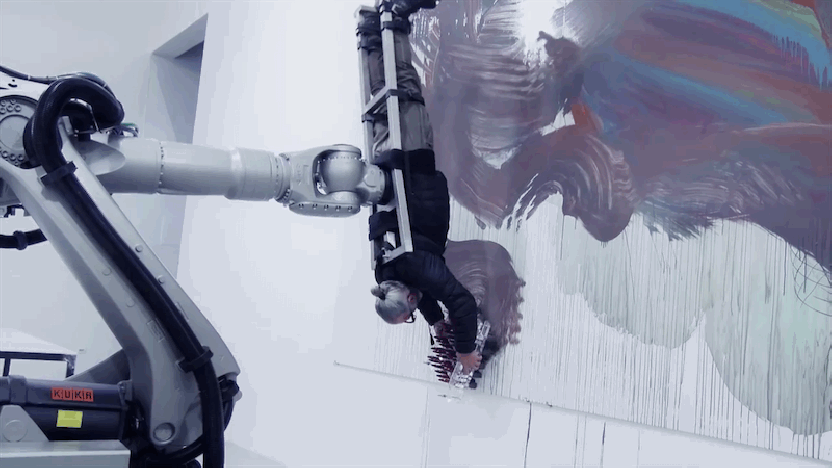
Éku bàá ruo n'íkè ìtè, ọ kùté íhé dị n'ófé
This Ìgbò proverb means (approximately) "by the time the ladle reaches the bottom of the pot, it's got to find something good in the soup." I hope you found something nice in this fortnight's soup, and if not, maybe one of the following song recommendations will do.
❧ A two-fer from The Continent. First a David Bowie cover: Ibibio Sound Machine - Heroes, giving the song the full polyrhythm treatment. ISM come to Boulder/Denver in a couple of weeks!
❧Also Sampa The Great - Never Forget ft. Chef 187, Tio Nason & Mwanjé just brilliant, song and visuals, and don't miss Mwanjé's lovely EP either.
❧ For grown B-Boys & B-Girls: another monster combo, Black Thought and Danger Mouse. Picking Belize from their new album because of its posthumous feature of the legendary MF DOOM.
Please do consider sharing this newsletter with others, and subscribing, if you haven't (button in the lower right). Always something new to listen to, some new play on words, a fresh take for tech's sake, with the side sauce of odd juxtapositions. Dá àlụ́-nu!
❧ Égwú 🪘 Ókwú ✍🏿 Ígwè 📡 Ńdụ̀ ❣️
